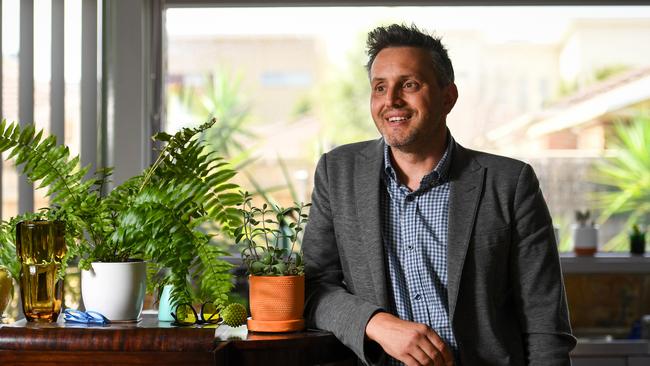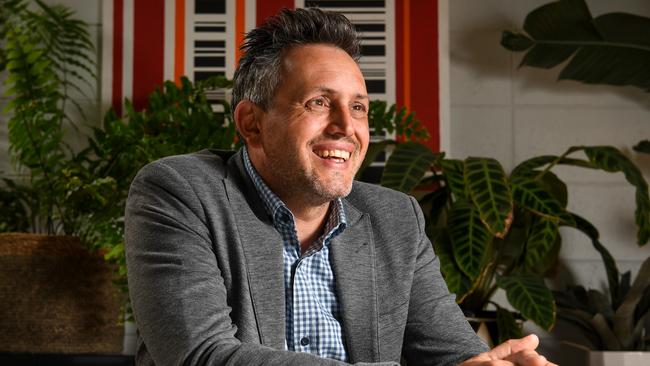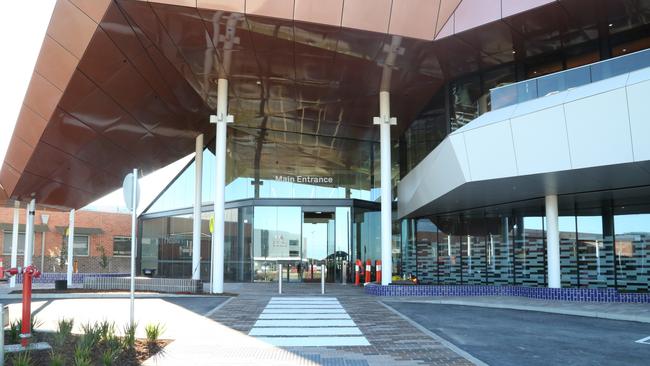Beyond Blue’s suicide prevention program vital to help save lives
Luke Richards was only 11 years old when he tried to take his own life, the first in a string of suicide attempts. He says programs such as Beyond Blue’s Way Back Support Service are vital in helping people rebuild their lives.

South East
Don't miss out on the headlines from South East . Followed categories will be added to My News.
Luke Richards was only 11 years old when he first tried to take his own life.
It was the first of multiple attempts.
“I’d had a horrendous experience at school, I’d had the snot beaten out of me. I couldn’t cope and at the time my family life wasn’t great either,” Mr Richards said.
“I remember thinking: ‘If this is what life is like, I don’t want a part of it’.”
Those tragic pre-teen thoughts were just the start of years of self-destructive, alcoholic behaviour and recurring self-harm.
MORE SOUTHEAST NEWS
EXPERTS CALL FOR PUBLIC HELP TO FIGHT FLESH-EATING BUG
CAR CRASH VICTIM’S BIG THANK YOU
Drugs and alcohol numbed the pain of his problems, but soon became a cause of them.
“They were a problem I had, they were also how I ran away from my problems,” he said.
The last time he attempted suicide — in 2012 — he wound up in hospital.

The traumatic experience made him acutely aware of the need for continued support for people discharged after a suicide attempt.
“I was in such a bad way and was left in a (hospital) corridor for four to five hours. By the time the (Crisis Assessment and Treatment) team came around I would have said anything to get out of there,” he said.
“My loved ones were in the emergency waiting room trying to see me, but they weren’t allowed to.
“I felt like I was a prisoner on a hospital gurney.”
While he had a strong support base Mr Richards said not everyone was as fortunate and, even then, it was vital to consult a mental health professional or attend recovery group meetings.
“I was very lucky to have that positive relationship with my family, but these are often the people who acutely feel the pain you’ve caused,” he said.
“Your greatest fear is how people will judge you, but when you’re in recovery programs you can be talking to people who have experienced this themselves.”
In many cases, people discharged from hospital go home to the same circumstances that may have contributed to their suicidal thoughts.
Research shows 15-25 per cent of people who attempt suicide are at risk of trying again.
Beyond Blue’s The Way Back Support Service — which is being run in Melbourne’s southeast out of Casey Hospital — aims to prevent this by providing tailored support for up to three months following discharge from hospital.
The program is funded by the South East Melbourne PHN and delivered by Neami.
People referred to the program are contacted by a support co-ordinator within 24 hours and provide guidance by connecting people with counselling, relationship coaching, nutrition or any other service they might need.
They support the person, and their family, to make a personal safety plan, which sets out clear steps to take if they begin to have thoughts of suicide again.

Beyond Blue lead clinical advisor Grant Blashki said it was critical people received support after being discharged from hospital.
“Suicidal behaviour is a very complex issue, (and) follow-ups have been patchy in the past,” Dr Blashki said.
“It could be gaps in the health system or that the patient themselves may not be keen to follow-up.
“Sending them back into the same situation they left is not clever and those first three months are a particularly risky time.”
Dr Blashki said he was excited about The Way Back Support Service and how it could help save lives, saying he hoped beyondblue would be able to expand the program to other areas of Melbourne.
Now a father of two, Mr Richards said he had turned his life around and was determined to be there for his family.
“Sobriety has given me my boys, it’s given me everything I have today,” he said.
“Mental illness is a constant and niggling pain and it doesn’t feel like you can ever solve it.
“But I want people to see that recovery is possible, that if one person can find that path back, there is hope.”
If you or someone you know needs help phone Beyond Blue on 1300 224 636 or visit beyondblue.org.au
MORE NEWS
